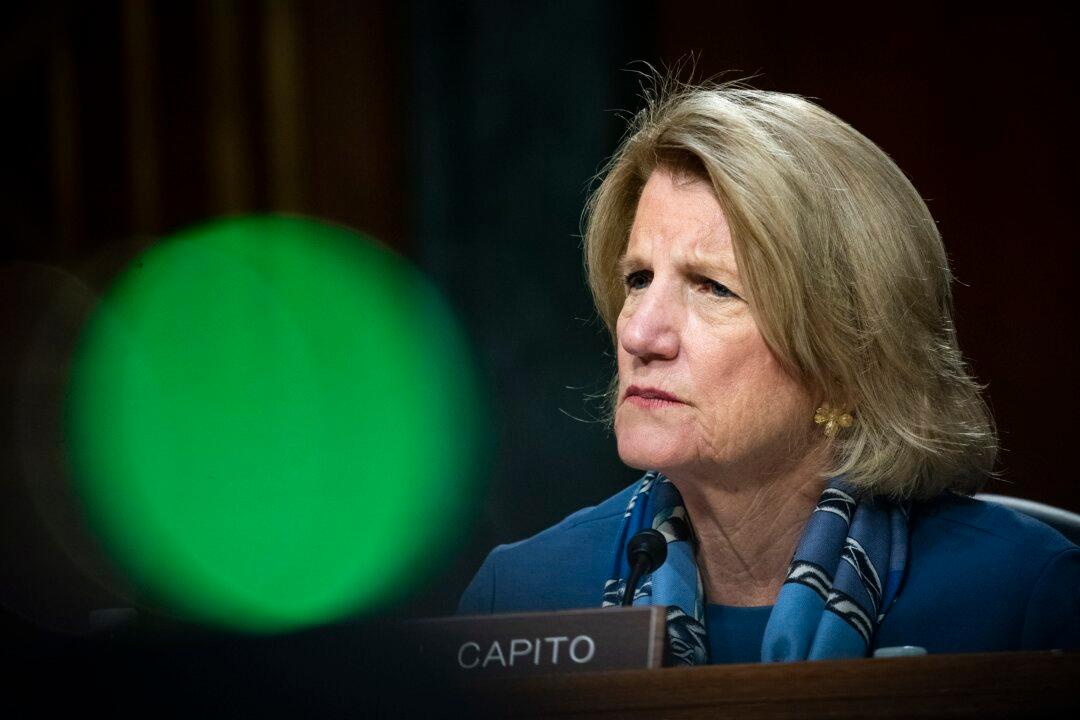A group of Senate Republicans led by Sen. Shelley Moore Capito (R-W.Va.) unveiled a $568 billion infrastructure counterproposal to President Joe Biden’s sweeping $2.3 trillion American Jobs Plan, which the GOP has panned for going far beyond the traditional concept of “infrastructure.”
Republicans announced their proposal at a press conference on Capitol Hill on April 22, with Capito opening the presser by noting longstanding bipartisan calls to fix the nation’s aging infrastructure, adding that the GOP defines the concept more narrowly, as “core infrastructure, physical infrastructure.”





